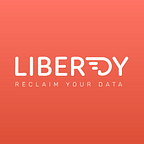Is Time Up for Facebook?
In 2011, Facebook settled with the Federal Trade Commission (FTC), over a claim that the social networking giant had “deceived consumers by telling them they could keep their information on Facebook private, and then repeatedly allowing it to be shared and made public.” According to the terms of the settlement, Facebook is obligated to adhere to specific guidelines aimed at safeguarding user data. Now, the FTC is conducting a non-public investigation and Facebook is on the hook, theoretically, for $7.1 trillion for breaching the terms of the settlement in a manner that potentially impacted over 100 million Americans.
While this kind of fine is not a realistic possibility, since there is only $1.63 trillion total in circulation, one thing is certain. The fine the FTC eventually levies will not endanger the continued existence of the company. It will probably end up in the region of a billion USD, which while sending a strong message, since it would set a record for an FTC fine, is still just a very painful slap on the wrist, considering the company’s profits last year were $15.9 billion. However, it would be used as leverage with which to pressure Facebook into changing its policies regarding the collection and handling of data, a process that could actually end up being equally expensive.
The revelations of “scraping” on Wednesday, worsened matters for Mark Zuckerberg, Facebook’s embattled CEO, who has been facing tough questioning on his company’s data protection policies in front of the senate. Apparently, Facebook hacks allowed bad actors to tie raw data to people’s real identities and build more complete profiles of them. This was achieved by exploiting search tools on its platform, making it possible for hackers to discover the identities and collect information on most of Facebooks 2 billion global users.
According to Democratic Senator Ed Markey: “The more we learn, the clearer it is that this was an avalanche of privacy violations that strike at the core of one of our most precious American values — the right to privacy.”
These days privacy is a hot topic, even with people who have never previously been concerned with how their data is being used and by whom. This Facebook scandal is simply one too many, as the last in a long, depressing list of breaches from a company entrusted with our data. This is due to the lax security that enabled the Cambridge Analytica scandal, with its secondary targets that included users’ friends, who never provided consent, combined with the Russian election meddling and the revelations of systematic manipulation involved, the high exposure inherent in default security settings in addition to the company’s delays in admitting culpability until it was caught red-handed.
In the words of New Jersey Representative. Frank Pallone Jr. the top Democrat on the House Energy and Commerce Committee, which heard from Zuckerberg on Wednesday: “Facebook only addresses concerns on its platform when it becomes a public crisis, and that is simply not the way you run a company that is used by over 2 billion people.”
It’s becoming abundantly clear that as users we need to step up and take note of what we are consenting to when we exchange an element of our privacy for free online services, while also holding the companies that collect our data accountable. Users are demanding a new paradigm that ensures higher levels of security and provides us with more control over the use of our data.
One company that seems to have emerged at the perfect time to address these issues is a new startup called Liberdy.
Liberdy is an advertising data management platform that harnesses the power of blockchain technology and the GDPR, a new EU privacy bill, to enable users to reclaim their data.
The GDPR bill, which goes into effect next month, states that the user is the rightful owner of their own data and any digital company that collects data on users must make that information available in an electronic format, at no charge. Liberdy collates this data, segments, de-personalizes and encrypts it, so that the user can safely profit from its use. The user decides which pieces of data they wish to share, and with whom, and then earns each time the information is used by the advertisers of their choice. Meanwhile, the advertiser benefits from first hand, up to date, accurate data, which wouldn’t otherwise be accessible outside the walled gardens of Google and Facebook.
Blockchain’s powerful, impenetrable encryption, its decentralization, which means no single company, government or institution can take control, introduces fairness and equality to the online advertising ecosystem. By providing a completely consent-based system and using smart contracts to ensure the transparency and security of the data sharing process, Liberdy is able to engender a degree of trust that the digital giants can no longer hope to regain.
Let’s be honest, Facebook isn’t going anywhere anytime soon, but the company is being put on notice, not just by the FTC, but by its users. A new approach is being demanded that while allowing digital companies to earn from advertising, protects the user’s right to privacy. New up-and-comers like Liberdy are offering an attractive, lucrative alternative, forcing Facebook and other online giants to raise their game and respect their users.
